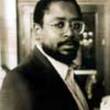The Good Lord Bird
Description
More Details
9781594632785
9781410464859
9781101616185
9781666592535
9781594486340
Similar Titles From NoveList
Similar Authors From NoveList
Published Reviews
Booklist Review
*Starred Review* Abolitionist John Brown calls her Little Onion, but her real name is Henry. A slave in Kansas mistaken for a girl due to the sackcloth smock he was wearing when Brown shot his master, the light-skinned, curly-haired 12-year-old ends up living as a young woman, most often encamped with Brown's renegade band of freedom warriors as they traverse the country, raising arms and ammunition for their battle against slavery. Though they travel to Rochester, New York, to meet with Frederick Douglass and Canada to enlist the help of Harriet Tubman, Brown and his ragtag army fail to muster sufficient support for their mission to liberate African Americans, heading inexorably to the infamously bloody and pathetic raid on Harpers Ferry. Dramatizing Brown's pursuit of racial freedom and insane belief in his own divine infallibility through the eyes of a child fearful of becoming a man, best-selling McBride (Song Yet Sung, 2008) presents a sizzling historical novel that is an evocative escapade and a provocative pastiche of Larry McMurtry's salty western satires and William Styron's seminal insurrection masterpiece, The Confessions of Nat Turner (1967). McBride works Little Onion's low-down patois to great effect, using the savvy but scared innocent to bring a fresh immediacy to this sobering chapter in American history.--Haggas, Carol Copyright 2010 Booklist
Publisher's Weekly Review
Musician and author McBride offers a fresh perspective on abolitionist firebrand John Brown in this novel disguised as the memoir of a slave boy who pretends to be a girl in order to escape pre-Civil War turmoil, only to find himself riding with John Brown's retinue of rabble-rousers from Bloody Kansas to Harpers Ferry. "I was born a colored man and don't you forget it," reminisces Henry Shackleford in a manuscript discovered after a church fire in the 1960s. Speaking in his own savvy yet naive voice, Henry recounts how, at age 10, his curly hair, soft features, and potato-sack dress cause him to be mistaken for a girl-a mistake he embraces for safety's sake, even as he is reluctantly swept up by Brown's violent, chaotic, determined, frustrated, and frustrating efforts to oppose slavery. A mix-up over the meaning of the word "trim" temporarily lands Henry/Henrietta in a brothel before he rejoins Brown and sons, who call him "Onion," their good-luck charm. Onion eventually meets Frederick Douglass, a great man but a flawed human being, Harriet Tubman, silent, terrible, and strong. Even more memorable is the slave girl Sibonia, who courageously dies for freedom. At Harpers Ferry, Onion is given the futile task of rousting up slaves ("hiving bees") to participate in the great armed insurrection that Brown envisions but never sees. Outrageously funny, sad, and consistently unflattering, McBride puts a human face on a nation at its most divided. Agent: Flip Brophy, Sterling Lord Literistic. (Aug.) (c) Copyright PWxyz, LLC. All rights reserved.
Library Journal Review
In the turbulent times just before the Civil War, abolitionist John Brown visits the Kansas Territories to free the slaves. In the midst of a gunfight between slave owner Dutch Henry and Brown, a young slave named Henry Shackleford watches his father die. Now freed and under the protection of the wily abolitionist, who mistakes the ten-year-old boy dressed in a potato sack for a girl, Henry maintains this feminine guise as he rides with Brown and his band of volunteers. After becoming separated during a skirmish, Henry finds himself in a Missouri brothel only to rejoin Brown's ragtag group two years later. Brown takes Henry on a fundraising tour back East, meeting with other abolitionists including Frederick Douglass and Harriet Tubman. Despite John Brown's reputation for violence, Henry discovers an old man whose intense passion for the abolitionist cause tends to overrule common sense, proving disastrously detrimental as they travel to Harpers Ferry in 1859. Verdict With its colorful characters caught in tragic situations, McBride's (The Color of Water; Song Yet Sung; Miracle at St. Anna) faux memoir, narrated by Henry, presents a larger-than-life slice of an icon of American history with the author's own particular twist. [See Prepub Alert, 2/25/13.]-Joy Gunn, Paseo Verde Lib., Henderson, NV (c) Copyright 2013. Library Journals LLC, a wholly owned subsidiary of Media Source, Inc. No redistribution permitted.
Kirkus Book Review
In McBride's version of events, John Brown's body doesn't lie a-mouldering in the grave--he's alive and vigorous and fanatical and doomed, so one could say his soul does indeed go marching on. The unlikely narrator of the events leading up to Brown's quixotic raid at Harper's Ferry is Henry Shackleford, aka Little Onion, whose father is killed when Brown comes in to liberate some slaves. Brown whisks the 12-year-old away thinking he's a girl, and Onion keeps up the disguise for the next few years. This fluidity of gender identity allows Onion a certain leeway in his life, for example, he gets taken in by Pie, a beautiful prostitute, where he witnesses some activity almost more unseemly than a 12-year-old can stand. The interlude with Pie occurs during a two-year period where Brown disappears from Onion's life, but they're reunited a few months before the debacle at Harper's Ferry. In that time, Brown visits Frederick Douglass, and, in the most implausible scene in the novel, Douglass gets tight and chases after the nubile Onion. The stakes are raised as Brown approaches October 1859, for even Onion recognizes the futility of the raid, where Brown expects hundreds of slaves to rise in revolt and gets only a handful. Onion notes that Brown's fanaticism increasingly approaches "lunacy" as the time for the raid gets closer, and Brown never loses that obsessive glint in his eye that tells him he's doing the Lord's work. At the end, Onion reasserts his identity as a male and escapes just before Brown's execution. McBride presents an interesting experiment in point of view here, as all of Brown's activities are filtered through the eyes of a young adolescent who wavers between innocence and cynicism.]] Copyright Kirkus Reviews, used with permission.
Booklist Reviews
*Starred Review* Abolitionist John Brown calls her "Little Onion," but her real name is Henry. A slave in Kansas mistaken for a girl due to the sackcloth smock he was wearing when Brown shot his master, the light-skinned, curly-haired 12-year-old ends up living as a young woman, most often encamped with Brown's renegade band of freedom warriors as they traverse the country, raising arms and ammunition for their battle against slavery. Though they travel to Rochester, New York, to meet with Frederick Douglass and Canada to enlist the help of Harriet Tubman, Brown and his ragtag army fail to muster sufficient support for their mission to liberate African Americans, heading inexorably to the infamously bloody and pathetic raid on Harpers Ferry. Dramatizing Brown's pursuit of racial freedom and insane belief in his own divine infallibility through the eyes of a child fearful of becoming a man, best-selling McBride (Song Yet Sung, 2008) presents a sizzling historical novel that is an evocative escapade and a provocative pastiche of Larry McMurtry's salty western satires and William Styron's seminal insurrection masterpiece, The Confessions of Nat Turner (1967). McBride works Little Onion's low-down patois to great effect, using the savvy but scared innocent to bring a fresh immediacy to this sobering chapter in American history. Copyright 2013 Booklist Reviews.
Library Journal Reviews
McBride continues exploring the long history of America's color line, begun in his landmark memoir, The Color of Water. A young slave in the Kansas Territory, Henry Shackleford must flee with abolitionist John Brown after Brown clashes with Henry's master. Complicating matters: Brown thinks Henry is a girl, a disguise Henry maintains up to the bold raid on Harpers Ferry.
[Page 90]. (c) Copyright 2013. Library Journals LLC, a wholly owned subsidiary of Media Source, Inc. No redistribution permitted.Library Journal Reviews
Freed by abolitionist John Brown, ten-year-old Henry Shackleford is mistaken for a girl. He maintains this disguise for years while riding with Brown as "Little Onion." McBride's retelling of the events that led to the tragic raid at Harpers Ferry is enthralling. (LJ Xpress Reviews, 7/19/13) (c) Copyright 2013. Library Journals LLC, a wholly owned subsidiary of Media Source, Inc. No redistribution permitted.
LJ Express Reviews
In the turbulent times just before the Civil War, abolitionist John Brown visits the Kansas Territories to free the slaves. In the midst of a gunfight between slave owner Dutch Henry and Brown, a young slave named Henry Shackleford watches his father die. Now freed and under the protection of the wily abolitionist, who mistakes the ten-year-old boy dressed in a potato sack for a girl, Henry maintains this feminine guise as he rides with Brown and his band of volunteers. After becoming separated during a skirmish, Henry finds himself in a Missouri brothel only to rejoin Brown's ragtag group two years later. Brown takes Henry on a fundraising tour back East, meeting with other abolitionists including Frederick Douglass and Harriet Tubman. Despite John Brown's reputation for violence, Henry discovers an old man whose intense passion for the abolitionist cause tends to overrule common sense, proving disastrously detrimental as they travel to Harpers Ferry in 1859. Verdict With its colorful characters caught in tragic situations, McBride's (The Color of Water; Song Yet Sung; Miracle at St. Anna) faux memoir, narrated by Henry, presents a larger-than-life slice of an icon of American history with the author's own particular twist. [See Prepub Alert, 2/25/13.]—Joy Gunn, Paseo Verde Lib., Henderson, NV (c) Copyright 2013. Library Journals LLC, a wholly owned subsidiary of Media Source, Inc. No redistribution permitted.
Publishers Weekly Reviews
Musician and author McBride offers a fresh perspective on abolitionist firebrand John Brown in this novel disguised as the memoir of a slave boy who pretends to be a girl in order to escape pre–Civil War turmoil, only to find himself riding with John Brown's retinue of rabble-rousers from Bloody Kansas to Harpers Ferry. "I was born a colored man and don't you forget it," reminisces Henry Shackleford in a manuscript discovered after a church fire in the 1960s. Speaking in his own savvy yet naïve voice, Henry recounts how, at age 10, his curly hair, soft features, and potato-sack dress cause him to be mistaken for a girl—a mistake he embraces for safety's sake, even as he is reluctantly swept up by Brown's violent, chaotic, determined, frustrated, and frustrating efforts to oppose slavery. A mix-up over the meaning of the word "trim" temporarily lands Henry/Henrietta in a brothel before he rejoins Brown and sons, who call him "Onion," their good-luck charm. Onion eventually meets Frederick Douglass, a great man but a flawed human being, Harriet Tubman, silent, terrible, and strong. Even more memorable is the slave girl Sibonia, who courageously dies for freedom. At Harpers Ferry, Onion is given the futile task of rousting up slaves ("hiving bees") to participate in the great armed insurrection that Brown envisions but never sees. Outrageously funny, sad, and consistently unflattering, McBride puts a human face on a nation at its most divided. Agent: Flip Brophy, Sterling Lord Literistic. (Aug.)
[Page ]. Copyright 2013 PWxyz LLC
































